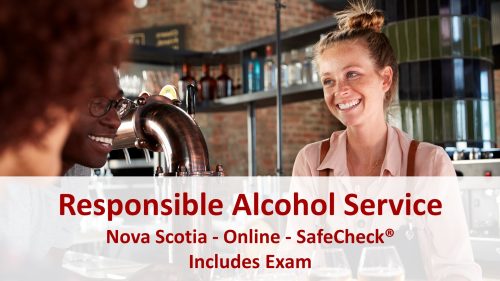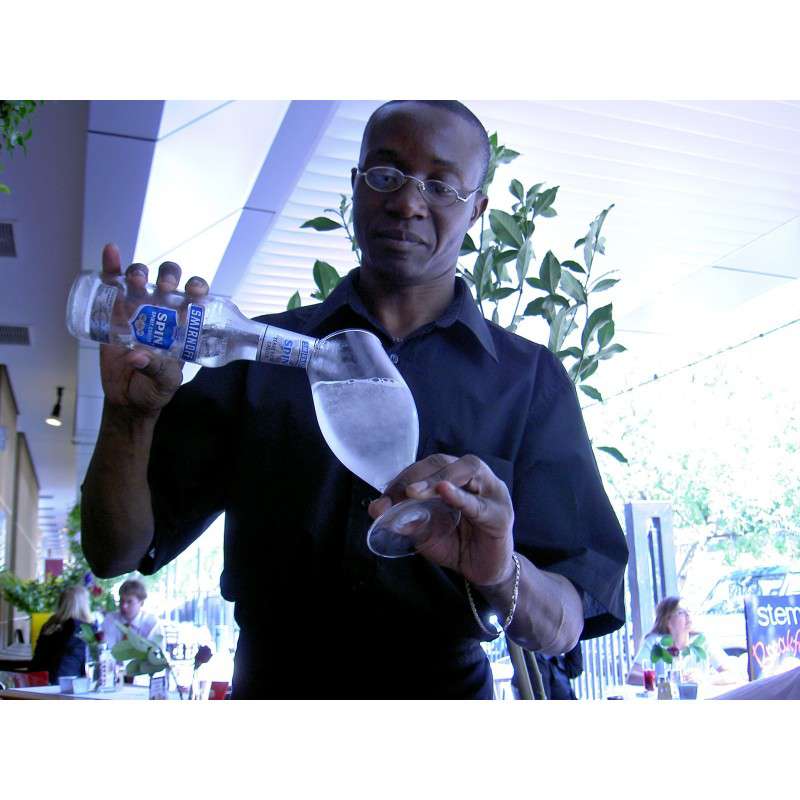Secure Your Job with safe serve certification michigan for Food Safety Professionals
Secure Your Job with safe serve certification michigan for Food Safety Professionals
Blog Article
Master Responsible Alcohol Solution With Comprehensive Qualification Programs
The mastery of liable alcohol solution is not merely a regulatory requirement; it is an essential component that improves the credibility and functional honesty of establishments within the friendliness industry. Comprehensive certification programs offer vital insights right into local regulations, reliable treatment methods, and consumer involvement approaches. By buying these training campaigns, organizations can foster a culture of duty amongst their team, mitigating threats and enhancing customer fulfillment. The course to effective application and its long-lasting benefits might not be as straightforward as it seems. What obstacles exist in advance for those who seek to boost their solution requirements?

Relevance of Responsible Alcohol Solution
Responsible alcohol service is vital to promoting public health and wellness and safety in facilities that serve alcoholic beverages. It encompasses a variety of techniques developed to protect against the overconsumption of alcohol, minimize the risk of alcohol-related harm, and make sure a risk-free atmosphere for clients and team alike. By maintaining accountable service requirements, establishments can minimize prospective events of drunkenness, which might bring about crashes, physical violence, or other negative outcomes.
Furthermore, liable alcohol solution improves the overall consumer experience. Patrons are most likely to return to establishments that prioritize their safety and health. This commitment fosters a positive credibility, urging referral recommendations and repeat organization. Furthermore, establishments that abide by responsible solution practices usually experience lower insurance coverage costs and decreased legal liabilities.
Furthermore, implementing responsible alcohol service techniques aligns with broader public health and wellness efforts aimed at minimizing drug abuse and promoting area health and wellness. This proactive method not just secures private customers but also contributes to a much healthier society. Eventually, accountable alcohol solution is not simply a legal obligation; it represents an ethical commitment to the well-being of clients and the neighborhood at big.
Key Parts of Accreditation Programs
Accreditation programs for liable alcohol service normally include several vital elements created to gear up personnel with the needed abilities and understanding to serve alcohol securely. First and foremost, these programs typically include comprehensive training on local and state alcohol legislations, making sure that participants understand their legal obligations and the effects of stopping working to conform.
One more important element is the recognition of indicators of drunkenness - servsafe food handlers card. Staff are educated to identify behavior hints showing when a customer might be over-served, enabling them to intervene properly
Additionally, efficient communication techniques are emphasized, instructing team exactly how to involve with consumers in a fashion that promotes responsible drinking. This includes training in dispute resolution methods, permitting personnel to deal with tight spots steadly and expertly.
In addition, programs often incorporate functional scenarios and role-playing workouts, giving individuals with real-life examples to practice their skills. Lastly, ongoing education and resources are necessary for preserving knowledge and abilities over time, as policies and ideal methods progress. Together, these elements create an extensive structure that empowers team to cultivate a much safer alcohol consumption environment while decreasing responsibility for establishments.
Advantages for Personnel and Establishments
Team and facilities alike gain significant advantages from joining responsible alcohol solution accreditation programs. For staff, these programs enhance knowledge and skills connected to alcohol solution, outfitting them to recognize indicators of drunkenness and implement reliable treatment techniques. This training not only promotes a sense of self-confidence amongst employees but additionally promotes a culture of security and responsibility in the workplace.
For establishments, spending in accreditation programs can cause reduced liability and fewer events connected to over-serving. By guaranteeing that personnel are well-trained in accountable solution techniques, establishments can Learn More Here minimize dangers connected with alcohol-related occurrences, thereby protecting their credibility and economic stability. Moreover, lots of jurisdictions supply rewards, such as reduced insurance coverage premiums, for certified establishments.
Furthermore, executing qualified techniques can enhance customer fulfillment and commitment. Customers are much more most likely to return to locations that prioritize their security and health. Eventually, a commitment to accountable alcohol service not only cultivates a favorable environment however also improves the total functional efficiency of facilities, making it a clever financial investment for long-term success in the hospitality industry.
Usual Obstacles in Alcohol Service
Making sure reliable alcohol service is not without its difficulties, also in establishments committed to liable techniques. One considerable difficulty is the need for personnel to precisely examine patrons' alcohol consumption degrees. servsafe food handlers card. This needs an eager understanding of just how numerous aspects, such as food intake, resistance, and specific distinctions, affect drunkenness
In addition, the pressure to make best use of sales can contrast with responsible solution methods. Staff members may encounter problems in declining solution to drunk individuals, especially in social Click Here environments where peer stress and assumptions are common.
One more obstacle is remaining upgraded with neighborhood legislations and regulations relating to alcohol solution. Conformity is crucial, yet regular modifications in regulations can produce complication and might lead to unintended violations.
Educating programs may not always cover the subtleties of real-world circumstances, leaving staff ill-equipped to deal with complicated scenarios. Irregular communication between administration and workers regarding expectations for responsible solution can better worsen these problems.
To navigate these obstacles efficiently, establishments must promote an environment of support, highlighting the relevance of accountable service while providing the required tools and training for team to be successful.
Steps to Obtain Qualification
To obtain Accountable Alcohol Solution Qualification, applicants normally start by investigating the specific demands mandated by their neighborhood regulative authorities. These needs may differ substantially depending upon the region, so it is important to acquaint oneself with the relevant regulations and laws.

After selecting a program, applicants should finish the requisite training, which usually covers subjects such as determining intoxication, comprehending lawful obligations, and executing approaches for responsible service. Individuals must actively involve with the material, as this understanding is essential for effective alcohol service.

Following training, candidates usually take an examination to examine their understanding of the material. Successful completion of this evaluation causes certification.
Conclusion
Finally, mastering liable alcohol service through thorough accreditation programs is vital for promoting security and enhancing customer experiences within the friendliness industry. By like this equipping personnel with the necessary understanding and abilities, facilities not just mitigate risks connected with overconsumption and lawful obligations but additionally cultivate a culture of responsibility. This dedication to liable solution eventually brings about increased consumer commitment and operational success, enhancing the relevance of ongoing training and adherence to alcohol service criteria.
Report this page